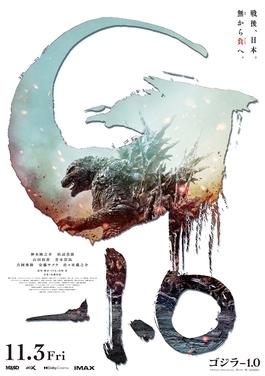When one of your oldest friends suggests a movie, it’s a good idea to watch it. I began watching Godzilla movies when I was quite young but I stopped after seeing the 1998 Roland Emmerich version. A friend from high school told me I should see Godzilla Minus One, and I took that advice seriously, if slowly. It certainly raises the bar on kaiju movies. An epic film of over two hours, it isn’t just a monster destroying towns—it may not be a standard horror movie but it is an exceptional Godzilla film. Following the story of Kōichi Shikishima, a kamikaze pilot who couldn’t bring himself to suicide, it introduces the kaiju in the last days of World War Two. There is a lot of political sensitivity in the movie. Godzilla—by far the scariest I’ve seen—kills off the Japanese crew on a Pacific island. Shikishima survives and returns home to find his family dead from bombing in Tokyo. He is shamed by his neighbor for failing in his kamikaze duty.

Shikishima assists Noriko Ōishi, also without family, in raising an orphaned infant. Meanwhile, Godzilla starts reappearing. The problem is, tensions between the Soviet Union and United States means that outside help isn’t available. Japan had been forced to disarm its military due to the war, and therefore it has to rely on civilians to organize and try to stop the monster. They devise a plan to try to sink the monster far enough into an ocean trench to crush it, and barring that, raise it rapidly to the surface so the depressurization will be fatal. Meanwhile, Shikishima, who believes Ōishi died in a Godzilla attack, discovers an experimental new plane that he then has made into a kamikaze-style fighter. The plan is to fly it into Godzilla’s mouth, killing the monster.
As a movie this succeeds in making the human story poignant enough that the kaiju threat becomes a way of tying together the fragments of a life shattered by war. Indeed, the condemnation of war is one the elements that makes the film exceptional. Godzilla is, of course, radioactive, but the movie doesn’t make that a cudgel. No, it explores how human foibles—beyond war, the national posturing—prevents humans from helping one another in time of need. And how war itself destroys life among the survivors. Like all Godzilla movies (and there are many), it leaves many holes in the story, but it has the feeling of a real movie. I agree with my friend that it’s well worth seeing.
